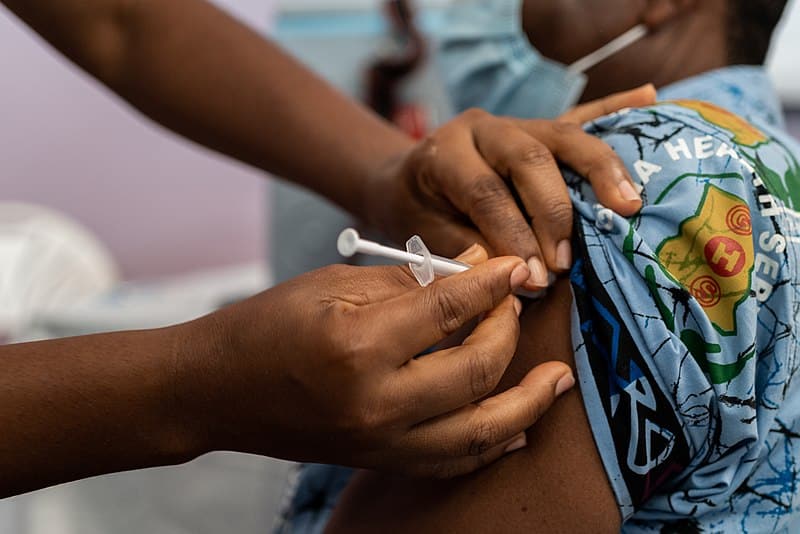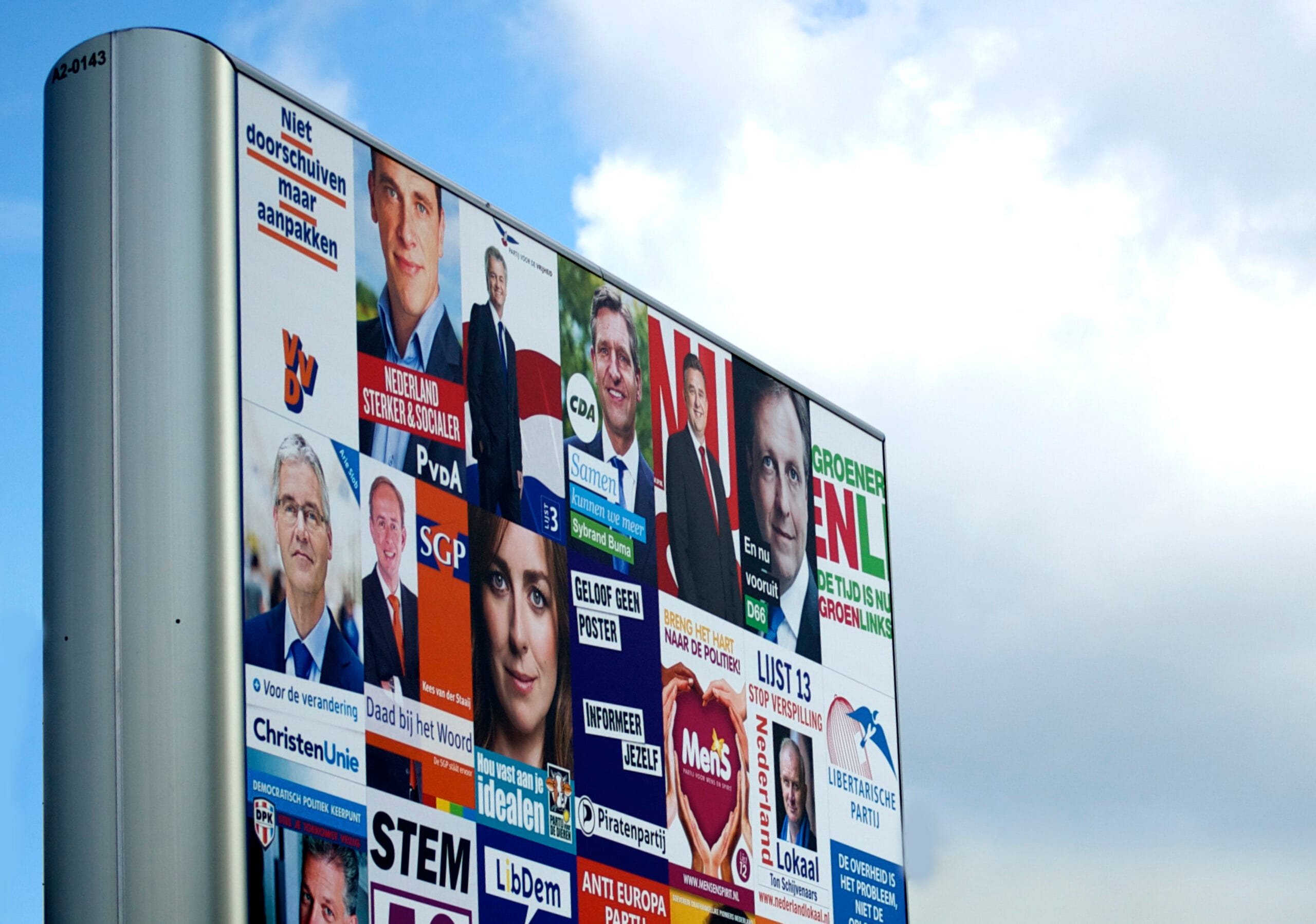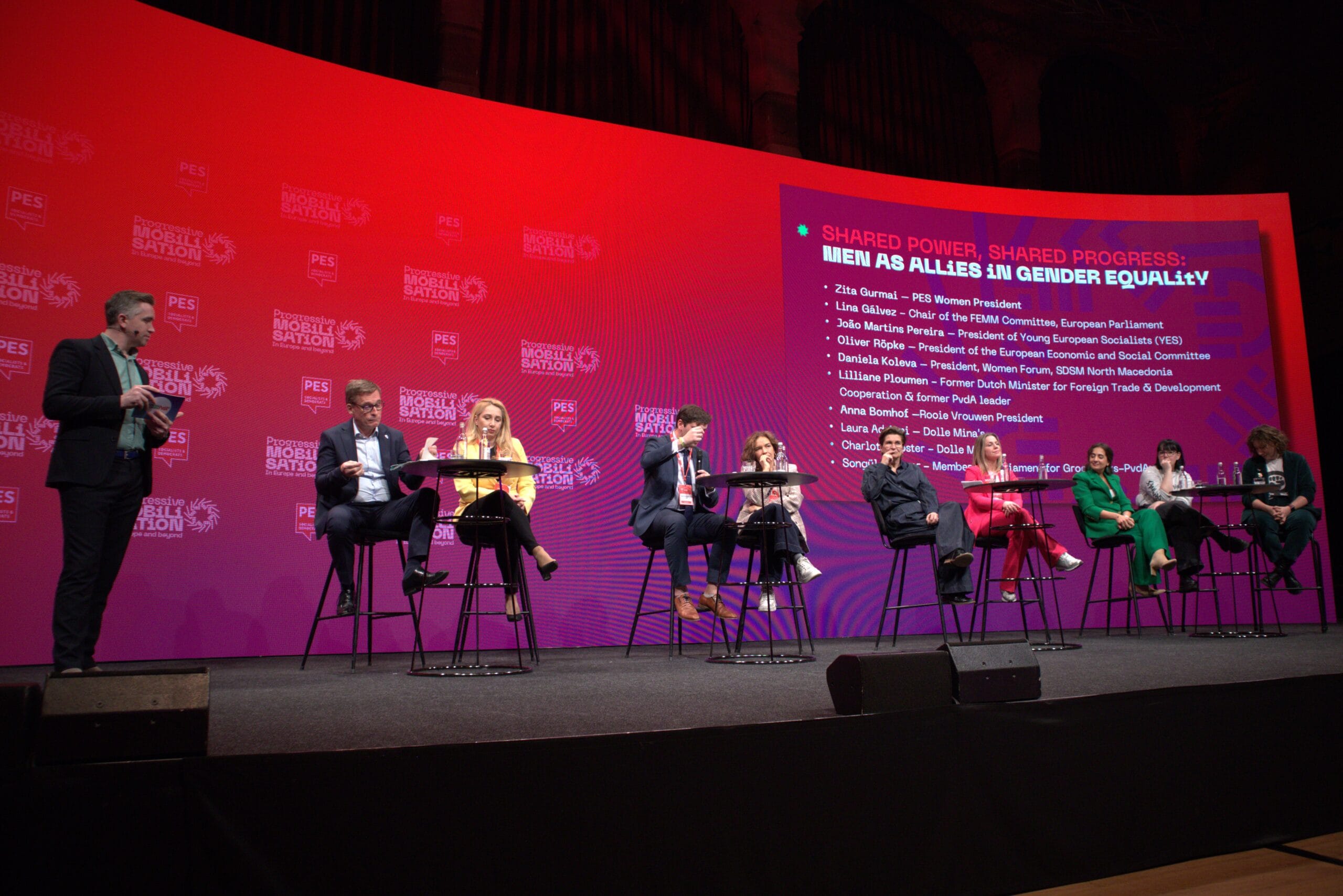Photo: WHO Vaccination - Wikimedia Commons
As fears of an mpox outbreak rise in the Netherlands and Health Minister Fleur Agema favours keeping available vaccines within our own borders, a humanitarian disaster is playing out in the Democratic Republic of Congo (DRC). The mpox virus continues to spread unhindered there, resulting in over 500 deaths. Despite the DRC asking for help two years ago, only now are the first vaccines arriving after months of delays. Why has it taken so long, when pharmaceutical companies have enough vaccines? And how is it that rich countries continue to stockpile surpluses at home, while in the DRC children are dying due to a shortage of the same?
The development of mpox virus in the DRC
The current mpox virus outbreak emerged a year ago in South Kivu, in eastern DRC, and spreads spread mainly through prostitution in mining towns and along Africa's trucking routes. Since the beginning of this year, more than 15 thousand cases of mpox have already been identified in the DRC, with over 500 deaths, mostly children. According to Congo's health minister Samuel-Roger Kamba, 3.5 million vaccines are urgently needed to stop the outbreak and 10 million vaccines for the entire African continent. The WHO in response, has declared the situation a 'Public Health Emergency of International Concern' (PHEIC). Nevertheless, getting vaccines to the DRC is proving challenging, partly due to the reluctance of big pharmaceutical companies based in rich countries.
Vaccine makers set high prices
There are several reasons why obtaining and distributing mpox vaccines in the affected areas is so slow, with a leading role for the pharmaceutical industry. Indeed, the root of the problem lies in the high price of vaccines that pharmaceutical companies set, meaning they are often unaffordable for low-income countries, such as the DRC. Even if these countries had sufficient financial resources, vaccine manufacturers usually give priority to countries offering higher prices. This means that African countries cannot compete with richer western countries. This is exactly what is happening now: rich countries pay huge sums for mpox vaccines to protect their own populations, forcing low-income countries back into the back of the queue.
Development organisations have been calling for years for more transparency around the prices and negotiations surrounding medicines. However, pharmaceutical companies often keep their contracts with governments secret. Although in 2019, the WHO announced a resolution adopted to create more openness within the medicines market, its implementation lags behind. This ensures that low-income countries continue to face the same inequalities.
Patent law hinders African vaccine production
Countries on the African continent not only face the challenge of procuring vaccines, they also face obstacles in producing them themselves. The few African companies that do have the ability to produce their own vaccines, in addition to the high price of the vaccines, also face the strict restrictions of pharmaceutical companies' patent rights. For the most commonly used mpox vaccine, the patent lies with the Danish company Bavarian Nordic.
Large pharmaceutical companies from rich western countries have, thanks to the TRIPS Treaty a firm grip on global medicine production. This treaty, signed in 1994 by World Trade Organisation (WTO) members, deals with intellectual property and stipulates, among other things, that patents are valid for 20 years. Many smaller countries signed this treaty without understanding the full implications. This often happened because their negotiators were not present at crucial talks and because of abuse of power by richer countries.
Although there are opportunities to relax patent law, by letting Bavarian Nordic use the technology share with African manufacturers to scale up production on the continent, the process has been slow. This delay, combined with the unwillingness from pharmaceutical companies, hinders progress. According to Jean Kaseya, director of Africa Centres for Disease Control and Prevention, production in Africa could fall by 80 to 90% if the technology is released. The adverse is that Bavarian Nordic has control over pricing in licensing, and the willingness of pharmaceutical companies to charge reasonable prices remains an issue. The fact that human lives are at stake seems to have little bearing on this.
WHO's inertia in times of crisis
The last option that then remains for many African countries is the support of development organisations, such as Gavi and UNICEF. These organisations receive donations of vaccines from other countries, but can use WHO approval also buy vaccines directly from pharmaceutical companies and send them to affected regions. Before these vaccines can be bought and delivered, WHO goes through an assessment process to determine which vaccines and treatments are safe and effective, a process called pre-qualification.
While this process is meant to ensure safety, the process does not prove easy and often leads to significant delays, even in a declared emergency. The WHO has been criticised for being too careful would be about the need to protect its reliability and, as a result, is ill-prepared to act quickly in emergencies. This indicates a system that is too slow, risk-averse and inflexible.
The enduring power gap between rich and poor
The unfairness of this situation is that rich countries have large stocks of mpox vaccines, while children in DRC are dying from the virus. A single infection in a rich supplied country would immediately trigger a full vaccination campaign to protect its own population. During the COVID-19 pandemic, spoke Winnie Byanyima, executive director of the United Nations Programme on HIV & AIDS, on a "global vaccine apartheid". She referred to the injustice, where rich countries were given access to vaccines and boosters, while low- and middle-income countries were left behind.
Now we are witnessing a vaccine-apartheid for mpox, with the need for low- and middle-income countries increasing. This again highlights the fundamental difference in power at the global level: the limited influence of low-income countries versus the clear power dynamics of rich countries and the pharmaceutical sector in times of humanitarian crisis.




